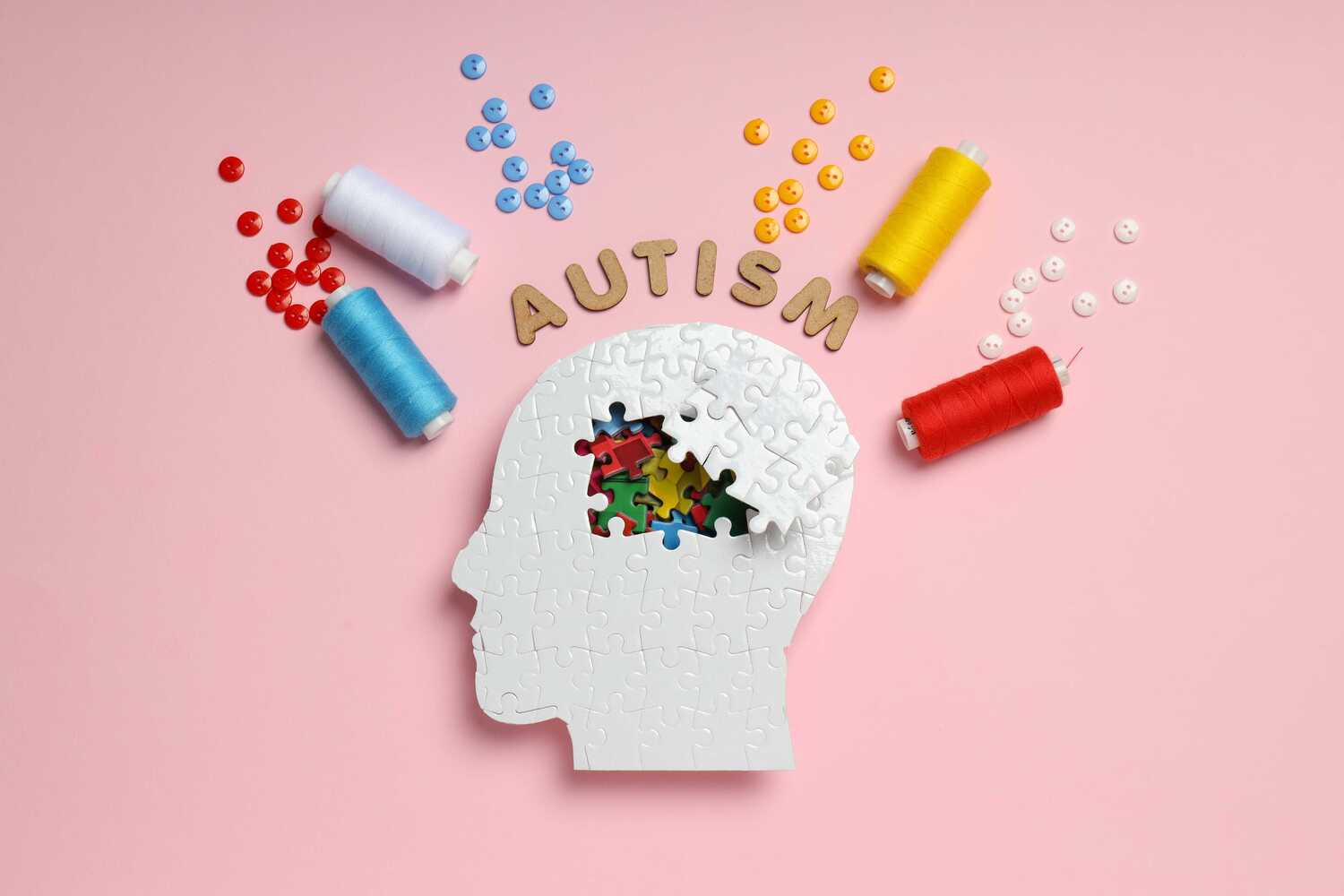Can Cannabis Be Used To Treat Autism Symptoms?
- Jake Peter
- Published: May 22, 2022
- Updated: February 1, 2024
- Fact-checked by Dr. Desiree Granados

Autism Spectrum Disorder (ASD) presents a significant challenge for patients and their families, with symptoms ranging from difficulties with social interaction to more disruptive behaviors. As researchers continue to search out new treatments, a question often arises: Can cannabis be leveraged as a therapeutic treatment for autism symptoms? Join us as we delve into the evidence surrounding marijuana’s potential as an autism treatment.
What Is Autism and What Are the Symptoms?
Autism, also known as Autism Spectrum Disorder (ASD), is a complex neurodevelopmental condition characterized by challenges with communication and social interaction, as well as certain repetitive behaviors. These symptoms and their severity can vary widely, but they often include difficulties with understanding social cues, making eye contact, and developing relationships with peers.
Children with autism may also exhibit repetitive movements, have intense interests in specific topics, and demonstrate a strong preference for routine. Sensory sensitivities, such as an aversion to certain sounds, textures, or lights, are also common. It’s important to note that while autism presents challenges, individuals with ASD may also exhibit unique strengths, including remarkable attention to detail and the ability to maintain intense focus on subjects of interest.
Note that only some states allow minors to use medical cannabis, and recreational use for minors is illegal everywhere in the U.S. While some states allow minors to use medical marijuana if they have a qualifying condition, it is widely believed that cannabis products are not safe for young children.
Can Cannabis Treat Autism?
While the direct effects of cannabis on treating autism spectrum disorder (ASD) remain an area of ongoing research, preliminary studies and anecdotal evidence suggest potential benefits. Some cannabinoids (the active compounds found in marijuana) have been observed to alleviate ASD symptoms such as seizures, restlessness, and challenges with social interactions.
However, the medical community has emphasized the need for more rigorous research to comprehensively understand the safety and efficacy of cannabis for individuals with autism. Seeing as the evidence on hand remains inconclusive, it’s vital for doctors and patients to approach the use of cannabis for ASD with caution.

What Are the Risks and Side Effects of Using Marijuana to Treat Autism?
While marijuana represents a potential treatment for some symptoms of autism, it’s critical to approach this option with caution due to the associated risks and side effects. Firstly, the psychoactive properties of tetrahydrocannabinol (THC) can exacerbate patients’ sensory hypersensitivity and lead to increased anxiety or stress.
Additionally, the long-term effects of marijuana on the developing brain are not fully understood, posing a particular concern for young individuals with autism. There is also the risk of dependency and the possibility of interference with other medications. Consultation with a healthcare professional is imperative when considering marijuana as a treatment for autism.
Can I Use CBD for Autism?
While there is growing interest in using cannabidiol (CBD) for a range of neurological conditions, the efficacy and safety of CBD for the treatment of autism remains a subject of ongoing research.
Initial studies and anecdotal evidence suggest that CBD may alleviate certain symptoms associated with autism, such as anxiety, behavioral outbreaks, and communication difficulties. However, the medical community advocates for caution, underscoring the need for larger, more rigorous clinical trials to establish clear guidelines and fully understand CBD’s long-term effects on neurodevelopment.
Is Autism a Qualifying Condition for Marijuana?
As of early 2024, the states in which autism is a qualifying condition for medical marijuana treatment are:
- Colorado
- Delaware
- Georgia
- Illinois
- Iowa
- Louisiana
- Michigan
- Minnesota
- Missouri
- New Mexico
- Pennsylvania
- Rhode Island
- Texas
- Utah
It’s important to note that some other states allow their medical marijuana doctors to determine what constitutes a qualifying condition, meaning a patient could potentially obtain medical cannabis for autism in those regions as well.
Additionally, only some states–such as Pennsylvania and Connecticut–allow minors to use medical cannabis products under the supervision of a medical marijuana caregiver.
Get Your Medical Marijuana Card through the Sanctuary
At the Sanctuary Wellness Institute, we streamline the process of obtaining your medical marijuana card. Our expert staff offers guidance throughout every step of the process, from evaluating your qualifying condition(s) to submitting an application to your state government.
The Sanctuary is committed to empathy, privacy, and comprehensive support. With us, you receive more than just an MMJ card–you gain access to educational resources and a community that values your well-being.
States Where We Offer Medical Marijuana Card Services
How we reviewed this article:
- Harriet Cannon (2018). Autism: the positives
https://cypf.berkshirehealthcare.nhs.uk/ - SAMHSA. Talking with Your Child About Marijuana
https://www.samhsa.gov/sites/default/files/marijuana-brochure-newpics-r15f_508c.pdf - Estácio Amaro da Silva Junior, Wandersonia Moreira Brito Medeiros, Nelson Torro, João Marçal Medeiros de Sousa, Igor Bronzeado Cahino Moura de Almeida, Filipe Barbosa da Costa, Katiúscia Moreira Pontes, Eliane Lima Guerra Nunes, Marine Diniz da Rosa, Katy Lísias Gondim Dias de Albuquerque (2022). Cannabis and cannabinoid use in autism spectrum disorder: a systematic review
https://pubmed.ncbi.nlm.nih.gov/34043900/ - Autism Science Foundation (2024). Use of Medical Marijuana
https://autismsciencefoundation.org/use-of-medical-marijuana/ - American Academy of Child & Adolescent Psychiatry (2019). Use of Medical Marijuana in Children and Adolescents with Autism Spectrum Disorder for Core Autism Symptoms or Co-Occurring Emotional or Behavioral Problems
https://www.aacap.org/AACAP/ - Mayo Clinic Health System (2023). How youth marijuana, alcohol use impacts life
https://www.mayoclinichealthsystem.org/hometown-health/speaking-of-health/how-teen-marijuana-use-impacts-brain-development - Nicole Harris (2023). What Parents Need to Know About CBD for Autism
https://www.parents.com/health/autism/cbd-oil-and-autism-what-parents-need-to-know/
Current Version
February 1, 2024
Updated By
Jake Peter
Fact-checked By
Dr. Desiree Granados
Editorial Process
Our Editorial Process
First Published
May 22, 2022
Written By
Jake Peter
Fact-checked By
Dr. Desiree Granados
Editorial Process
Our Editorial Process
Other Posts About Medical Marijuana Treatment

Jake Peter received his journalism degree from Emerson College and has been writing content for the Sanctuary Wellness Institute since 2021. He is passionate about all things cannabis.







